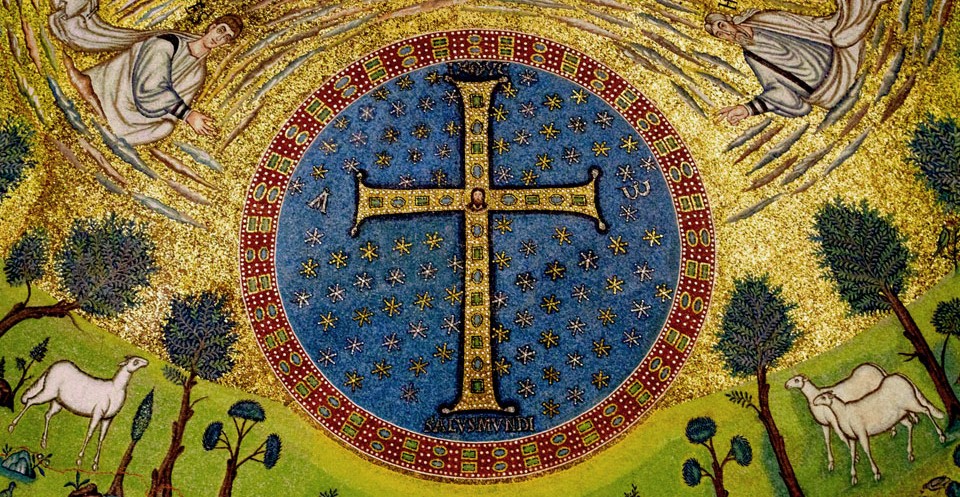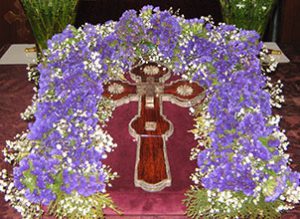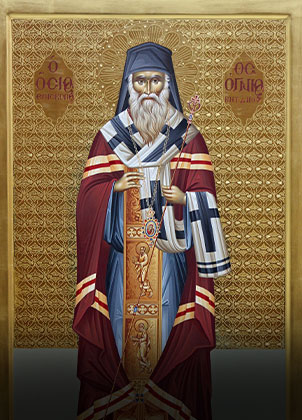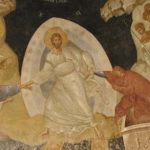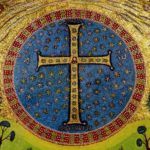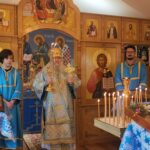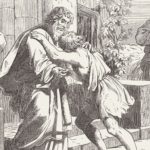In the name of the Father and the Son and the Holy Spirit.
CHRIST IS RISEN!
During the period of Pascha, we repeat the greeting ‘Christ is risen” endlessly, but it never becomes something ordinary, always remaining joyful, comforting, and inspiring. Why is this so? – Because these two words convey the wondrous tidings of Christ’s Resurrection; many centuries these tidings are passed on, but it is always new, joyful, and unique.
Christ is risen and although all of us will die, we will rise again. As He died for all, so He was raised for all. As the Apostle says: “Christ has been raised from the dead, the firstfruits of those who have fallen asleep.” (1Cor. 15)
If Christ is risen, then it is certain that we will have eternal life, which He promised and which He showed in His resurrection.
Christ’s resurrection was a victory over death because He was raised in a new, spiritual body, which is no more subject to death.
But perhaps someone, still doubting the resurrection may ask: “If Christ’s resurrection has destroyed death, why do people die, as they died before?” The Apostle answers: “What you sow does not come to life unless it dies.” (1 Cor. 15)
The apostle takes his example from everyday life. Grain sown into earth, first, decomposes and, so to speak, dies; and a new plant emerges from it. We may see here a true similarity with the resurrection: the bodies of those who pass away are buried in the earth, like the seed of new life. They decompose, but on the day of the Resurrection they will rise again.
The plant which grows from a seed is not the same as the seed itself, similarly after the resurrection our bodies will not be the same as before.
The Apostle explains this with the same example of the seed: “And what you sow is not the body that is to be, but a bare grain, perhaps of wheat or of some other grain. But God gives it a body as He has chosen, and to each kind of seed its own body…So is it with the resurrection of the dead. What is sown is perishable; what is raised is imperishable. It is sown in dishonour; it is raised in glory. It is sown in weakness; it is raised in power. It is sown a natural body; it is raised a spiritual body.” (1 Cor. 15)
The whole world after the resurrection will be renewed; there will be no death, corruption, or sin. Accordingly, our bodies will be changed; they will become spiritual, as the Lord’s body after resurrection. St Paul continues: “Now this I say, brethren, that flesh and blood cannot inherit the kingdom of God; nor does corruption inherit incorruption… For this corruptible must put on incorruption, and this mortal must put on immortality.” (1 Cor. 15)
Like a statue of bronze, which being badly damaged cannot be restored unless it is melted and cast again, – the human nature damaged by sin should first decompose, so as to be raised anew.
As St Basil the Great says in one of his Pentecost prayers: “Truly and verily great, O Master and Creator of all, is Thy mystery: the temporary dissolution of Thy creatures, and their restoration thereafter, and their repose forever”. (3rd prayer)
Death is not the end but the beginning of a new life in different form of existence, which we are now unable to comprehend.
St Basil says in the same prayer: “For there will be no death for us, Thy servants, when we leave the body and come to Thee, our God, but a passing from things most sorrowful to those which are most profitable and delightful, to rest and joy.”
Amen.
CHRIST IS RISEN!

